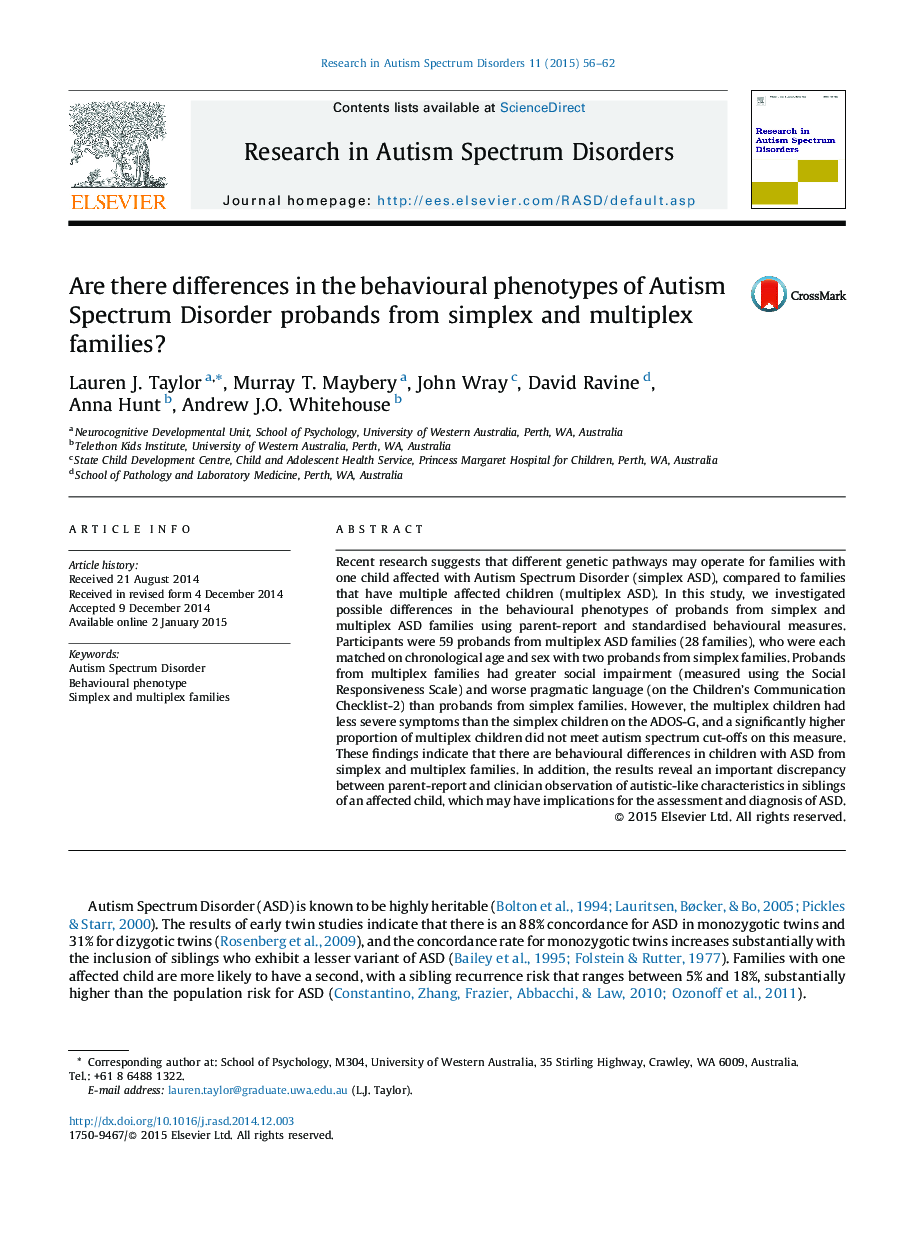| Article ID | Journal | Published Year | Pages | File Type |
|---|---|---|---|---|
| 370005 | Research in Autism Spectrum Disorders | 2015 | 7 Pages |
•We investigate the behavioural phenotype of ASD in simplex (SA) and multiplex (MA) probands.•MA probands had more severe social impairment than SA probands, as reported by parents.•Parents of SA probands reported better pragmatic language abilities (Social, Use of Context and Nonverbal skills) than parents of MA probands.•MA probands had less severe ASD symptoms measured using the ADOS-G.•The discrepancy between parent-report and clinician-rated autistic-like characteristics may have implications for the assessment and diagnosis of ASD.
Recent research suggests that different genetic pathways may operate for families with one child affected with Autism Spectrum Disorder (simplex ASD), compared to families that have multiple affected children (multiplex ASD). In this study, we investigated possible differences in the behavioural phenotypes of probands from simplex and multiplex ASD families using parent-report and standardised behavioural measures. Participants were 59 probands from multiplex ASD families (28 families), who were each matched on chronological age and sex with two probands from simplex families. Probands from multiplex families had greater social impairment (measured using the Social Responsiveness Scale) and worse pragmatic language (on the Children's Communication Checklist-2) than probands from simplex families. However, the multiplex children had less severe symptoms than the simplex children on the ADOS-G, and a significantly higher proportion of multiplex children did not meet autism spectrum cut-offs on this measure. These findings indicate that there are behavioural differences in children with ASD from simplex and multiplex families. In addition, the results reveal an important discrepancy between parent-report and clinician observation of autistic-like characteristics in siblings of an affected child, which may have implications for the assessment and diagnosis of ASD.
